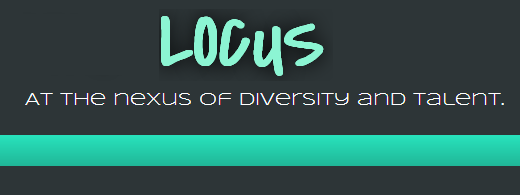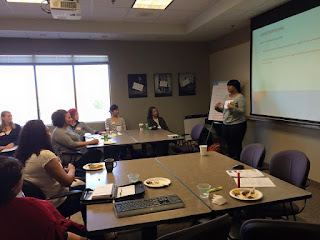Building on our Mini-Microaggressions Film Festival in October, LOCUS held a facilitated discussion on microaggressions at Rondo Community Outreach Library last week. Once again, Chelles' Kitchen provided a delicious meal while guest facilitator Alicia Sojourner, Racial Justice and Public Policy Program Coordinator at the YWCA of Minneapolis, shed light on the history, origination and impact of microaggressions in communities of color and society as a whole. We started the evening by spending some time on the definition of microaggressions.
Microaggressions: “Brief and commonplace daily verbal, behavioral, or environmental indignities, whether intentional or unintentional, that communicate hostile, derogatory, or negative racial slights and insults toward people of color”- Professor Derald Sue
While unpacking the definition above, Alicia opened discussion for attendees to share their own personal experiences with microaggressions. She challenged the group to not only think of instances where we were on the receiving end of microaggressions, but when we have been the perpetrator of such acts. This expanded the conversation to discuss how we as communities of color also allow and perpetuate stereotypes and use them against one another.
In order to confront microaggressions, Alicia provided the group with 5 teachings on how to begin conversations to address them when they occur:
1. Questioning
Asking questions to compel the perpetrator to think about their comments/actions and to navigate and unpack the meaning of the behavior. This allows for an open dialogue.
2. Empathetic Relating
By turning the situation around on the perpetrator, you allow them to put themselves in your shoes by perhaps asking if they have ever experienced or received that comment or question, and if so what their response would be.
3. I Feel
Using “I feel” statements (typically toward close co-workers, friends and people from one’s own community) to explain to the perpetrator the impact that microaggression has on you personally.
4. Educating
Using microaggressions as teachable moments is most effective when used after steps 1-3, and includes explaining the definition and theory of microaggressions.
5. Returning Later
When on the receiving end of a microaggression, sometimes you need to practice self-care by removing yourself from the situation without addressing it at that moment. This offers time to think of how to address it at a later time after you’ve had a chance to gather your thoughts. The key is, you must return later, otherwise you have granted permission. You have allowed any and all of the “isms” to occur.
Alicia then facilitated a paired role-playing activity where participants navigated conversations where one partner is on the receiving end of a committed microaggression by the other partner. We were challenged to address the microaggression with one of the above techniques. The role-play was eye-opening and gave us a chance to begin to incorporate some of the language and practices that can help to confront and overcome microaggressions.
Thanks again to Alicia for facilitating such meaningful dialogue and to the participants for sharing their personal stories and insights.











